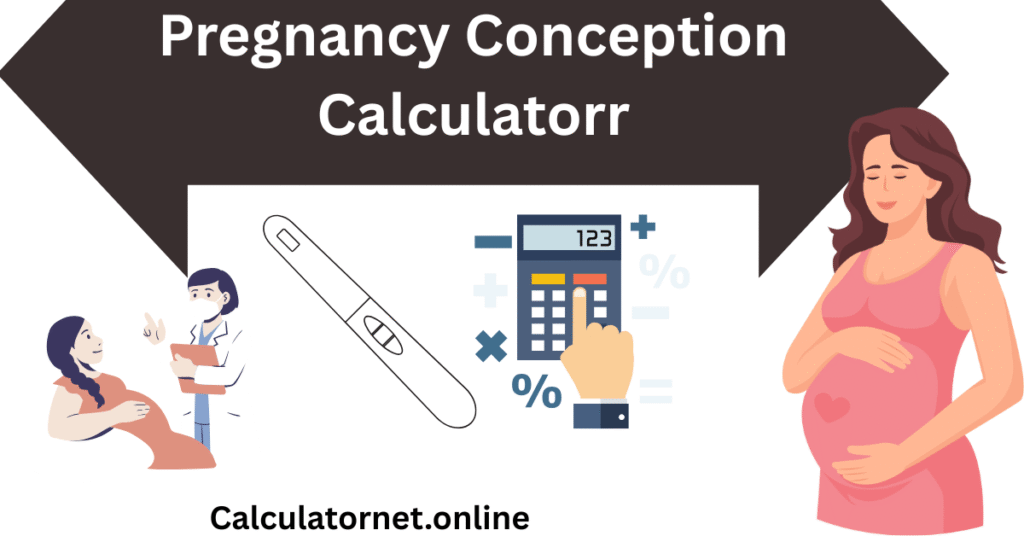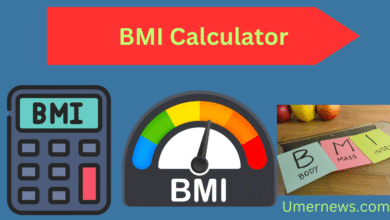Pregnancy Conception Calculator
Pregnancy Conception Calculator

Pregnancy Calculator
Estimate your due date and milestones
Pregnancy Conception Calculator: Find out when you likely conceived your baby and track your pregnancy journey. This guide explains how it works!
Pregnancy Conception Calculator: Find Out When You Conceived
The moment you see those two lines is electrifying. A rush of questions, excitement, and a little bit of fear all come at once. One of the first things you likely wonder is, “When did this happen?” Knowing your conception date can be a meaningful part of the early pregnancy journey, helping you connect with your baby even before you meet them. While a due date is an educated guess, the pregnancy conception calculator gives you a closer look at the key moments of your baby’s beginning.
This guide will explain what a conception calculator is, how it works, and why it can be a helpful tool. We’ll also dive into the difference between your conception date and your due date, along with other key milestones you can track as you prepare for your baby’s arrival.
How a Pregnancy Conception Calculator Works
A conception calculator is a simple tool that helps you estimate when you conceived. Unlike a due date calculator, which works backward from your last menstrual period (LMP) to estimate your due date, a conception calculator focuses on the fertile window. It typically requires you to input the first day of your last menstrual period.
Here’s the simple science behind it:
- The Menstrual Cycle: A typical cycle is 28 days long, though it can vary for many women.
- Ovulation: Ovulation, the release of an egg from the ovary, usually happens around day 14 of a 28-day cycle.
- The Fertile Window: Your most fertile window is the 5 days leading up to and including ovulation. Sperm can live inside the body for up to five days, and an egg is viable for about 12-24 hours after release.
The calculator uses this information to pinpoint the most probable time you conceived. Keep in mind, this is an estimate, not an exact science. Many factors can influence it, including irregular cycles.
Conception Date vs. Due Date: What’s the Difference?
It’s easy to get these two dates confused, but they serve different purposes.
- Conception Date: This is the specific day or week when the sperm fertilized the egg. It’s often used by expecting parents for emotional reasons—to mark the very beginning of their baby’s life.
- Due Date: This is the estimated day your baby will be born. It’s a medical and logistical milestone, used by doctors to monitor your baby’s growth and plan for delivery. Only about 5% of babies are born on their exact due date, which is why doctors often say, “Your due date is not an expiration date.”
Your due date is typically calculated from the first day of your last menstrual period (LMP) and is an estimated 40 weeks from that point. Your doctor might also use an ultrasound early in your pregnancy to get a more accurate due date based on the baby’s size.
Key Pregnancy Milestones to Track
Beyond your conception and due dates, there are many other exciting milestones to look forward to.
- First Trimester: This period is filled with rapid change. Your baby’s major organs begin to develop. You might start feeling tired or experience morning sickness.
- First Ultrasound: This is often a pivotal moment where you can see your baby for the first time. The ultrasound can also help confirm your due date.
- Feeling the First Kick: Sometime between 16 and 25 weeks, you’ll feel your baby’s first movements. This is a special connection that many parents-to-be cherish.
- Baby Shower: A fun and meaningful tradition where friends and family celebrate the impending arrival of your baby.
A Note on Accuracy and Doctor’s Visits
While using a pregnancy conception calculator can be a fun and insightful part of your journey, it should never replace professional medical advice. For the most accurate dates and a personalized care plan, always consult your doctor. They can use a combination of your menstrual cycle history, ultrasound measurements, and other medical factors to provide the most reliable information.
A reputable source like the American College of Obstetricians and Gynecologists (ACOG) provides valuable information about pregnancy health and what to expect during this exciting time. Remember to use tools like this as a guide and a source of excitement, but always trust your healthcare provider as your primary source of truth.
Frequently Asked Questions
Q1: How accurate is a conception calculator?
A conception calculator provides a good estimate but isn’t 100% accurate. Its precision depends on how regular your menstrual cycle is. For the most accurate due date, it’s best to rely on a calculation from your doctor or a confirmed ultrasound.
Q2: What is the earliest a pregnancy can be detected?
Pregnancy can be detected as early as 7–12 days after conception with a blood test. A home urine test can typically give a positive result around the time of your missed period.
Q3: Can I get pregnant during my period?
While it’s less likely, it’s not impossible to get pregnant during your period, especially if you have a short menstrual cycle. Sperm can survive for up to five days inside the body, so intercourse at the end of your period could lead to conception a few days later.
Q4: Is it possible to know the exact date of conception?
Unless you had a single act of intercourse during your fertile window, it’s very difficult to pinpoint the exact date of conception. That’s why a pregnancy conception calculator gives a range of dates.
Q5: What’s the best time to take a pregnancy test?
For the most reliable results, you should take a home pregnancy test on or after the first day of your missed period. Taking it earlier can sometimes lead to a false negative.
Q6: What are some early signs of pregnancy?
Common early signs include a missed period, tender or swollen breasts, increased urination, nausea (morning sickness), and fatigue. However, these symptoms vary from person to person.
Q7: Can a pregnancy calculator determine the baby’s gender?
No, a pregnancy conception calculator cannot determine the baby’s gender. The sex of the baby is determined at the moment of conception by the sperm that fertilizes the egg.
Conclusion
Whether you’re just starting your journey or already have a positive test in hand, a pregnancy conception calculator can be a fun and useful tool to understand the timeline of your baby’s development. It provides a meaningful connection to your baby’s beginning and helps you navigate the exciting weeks ahead.
While it’s a great tool for personal insight, remember to lean on your healthcare provider for all medical advice and tracking. We’d love to hear about your experience. How did you first find out you were pregnant? Share your story in the comments below!





